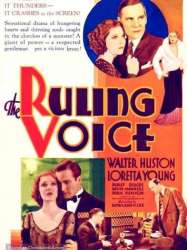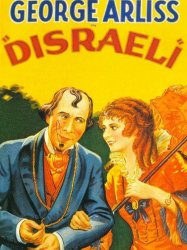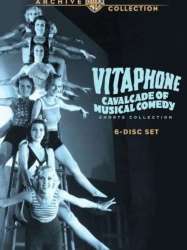Vitaphone

If you like this company, let us know!
Vitaphone was a sound film system used for feature films and nearly 1,000 short subjects made by Warner Bros. and its sister studio First National from 1926 to 1931. Vitaphone was the last major analog sound-on-disc system and the only one which was widely used and commercially successful. The soundtrack was not printed on the film itself, but issued separately on phonograph records. The discs, recorded at 33 1/3 rpm (a speed first used for this system) and typically 16 inches in diameter, would be played on a turntable physically coupled to the projector motor while the film was being projected. Many early talkies, such as The Jazz Singer (1927), used the Vitaphone system. The name "Vitaphone" derived from the Latin and Greek words, respectively, for "living" and "sound".
The "Vitaphone" trademark was later associated with cartoons and other short subjects that had optical soundtracks and did not use discs.
Best films
Filmography of Vitaphone (26 films)
Production

Noah's Ark (1928)
, 2h15Directed by Michael Curtiz, Darryl F. Zanuck, Anthony Coldeway
Origin USA
Genres Drama, War, Musical
Themes Films about religion, Musical films, Political films, Films based on the Bible, Films about Jews and Judaism, Disaster films
Actors Dolores Costello, George O'Brien, Noah Beery Sr., Louise Fazenda, Guinn "Big Boy" Williams, Paul McAllister
The film opens after the great flood, with Noah and his family outside of the Ark praising the Lord. Then comes depictions of the building of the Tower of Babel and the worshipping of the golden calf. Then it switches to the eve of World War I. The theme of the gold calf is carried forward by a scene in which a bankrupted trader (Otto Hoffman) shoots his uncaring stockbroker.

Lights of New York (1928)
, 57minutesDirected by Bryan Foy
Origin USA
Genres Drama, Crime
Actors Helene Costello, Cullen Landis, Eugene Pallette, Mary Carr, Wheeler Oakman, Robert Elliott
When bootleggers Jake Jackson (Walter Percival) and Dan Dickson (Jere Delaney), who have been hiding out in a small upstate New York town, learn that they finally can return to New York, they try to convince a young kid named Eddie Morgan (Cullen Landis) and his friend, a local barber named Gene (Eugene Palette) to come with them.

My Man (1928)
, 1h39Directed by Archie Mayo
Genres Drama, Musical
Themes Musical films
Actors Fanny Brice, Guinn "Big Boy" Williams, Edna Murphy, Andres de Segurola, Richard Tucker, Arthur Hoyt
Fannie Brand, an industrious girl who supports her brother and sister by working in a theatrical costume house, falls in love with Joe Halsey, a young fellow who earns a precarious living demonstrating an elastic exerciser in a drugstore window. Fannie and Joe set a date to be married, but the wedding is called off when Fannie finds Joe making love to her unprincipled sister, Edna. Fannie auditions for Landau, a theatrical producer, and goes on the Broadway stage. Fannie is a great success, and she and Joe soon find their way back into each other's arms.

The Ware Case (1928)
, 1h12Directed by Manning Haynes
Origin United-kingdom
Genres Drama
Themes Films based on plays
Actors Stewart Rome, Ian Fleming, Cameron Carr

The Haunted House (1928)
, 1h10Directed by Benjamin Christensen
Origin USA
Genres Drama, Comedy, Comedy-drama, Horror
Themes Films based on plays
Actors Larry Kent, Thelma Todd, Edmund Breese, Sidney Bracey, Barbara Bedford, Flora Finch

The Jazz Singer (1927)
, 1h30Directed by Alan Crosland, Gordon Hollingshead
Origin USA
Genres Drama, Comedy-drama, Musical, Romance
Themes Films about music and musicians, Films about religion, Théâtre, Jazz films, Musical films, Films about Jews and Judaism, Films based on plays
Actors Al Jolson, May McAvoy, Warner Oland, Eugenie Besserer, Myrna Loy, Otto Lederer
Cantor Rabinowitz wants his son to carry on the generations-old family tradition and become a cantor at the synagogue in the Jewish ghetto of Manhattan's Lower East Side. But down at the beer garden, thirteen-year-old Jakie Rabinowitz is performing so-called jazz tunes. Moisha Yudelson spots the boy and tells Jakie's father, who drags him home. Jakie clings to his mother, Sara, as his father declares, "I'll teach him better than to debase the voice God gave him!" Jakie threatens: "If you whip me again, I'll run away — and never come back!" After the whipping, Jakie kisses his mother goodbye and, true to his word, runs away. At the Yom Kippur service, Rabinowitz mournfully tells a fellow celebrant, "My son was to stand at my side and sing tonight – but now I have no son." As the sacred Kol Nidre is sung, Jakie sneaks back home to retrieve a picture of his loving mother.

When a Man Loves (1927)
, 1h51Directed by Alan Crosland
Origin USA
Genres Historical, Romance
Themes Films about sexuality, Erotic films, Films about prostitution
Actors John Barrymore, Dolores Costello, Warner Oland, Sam De Grasse, Holmes Herbert, Stuart Holmes
Chevalier Fabien des Grieux, who has forsworn the world for the church, falls passionately in love with young Manon Lescaut when he encounters her en route to a convent with her brother André. The lustful Comte Guillot de Morfontaine offers André a tempting sum for Manon, and learning of their bargain, Fabien takes her to Paris, where they spend an idyllic week in a garret. André finds her, persuades her to leave Fabien, and tries to force her into an alliance with Morfontaine--then rescues Manon from the advances of a brutal apache. Fabien, crushed to believe that Manon has become Morfontaine's mistress, is about to take his vows but is deterred by her love for him. King Louis sees Manon in Richelieu's drawing room and wins her. The rejected Morfontaine orders her arrest and deportation, but he is killed by Fabien, who joins Manon on a convict ship bound for America. After inciting the convicts to mutiny, he escapes with her in a small boat.
Distribution

College Coach (1933)
, 1h16Directed by William A. Wellman
Origin USA
Genres Drama, Comedy-drama
Themes Sports films, American football films
Actors Dick Powell, Ann Dvorak, Arthur Byron, Pat O'Brien, Nat Pendleton, Phillip Reed
Calvert College begins taking football more seriously, over the objections of Dr. Sargeant, the president of the school. Coach Gore is brought in and given a free rein, which he uses to pay money to standout players. He is so obsessed with winning that he ignores his wife, Claire.

Rambling 'Round Radio Row (1931)
, 9minutesOrigin USA
Genres Comedy
Themes Buddy films
Actors Kate Smith, Jerry Wald, Jay C. Flippen, Tito Guízar, Tess Gardella, Rose Marie

The Ruling Voice (1931)
, 1h16Directed by Rowland V. Lee
Origin USA
Genres Drama, Comedy, Crime, Romance
Themes Gangster films
Actors Walter Huston, Loretta Young, Dudley Digges, Doris Kenyon, David Manners, Gilbert Emery
 Connection
Connection



